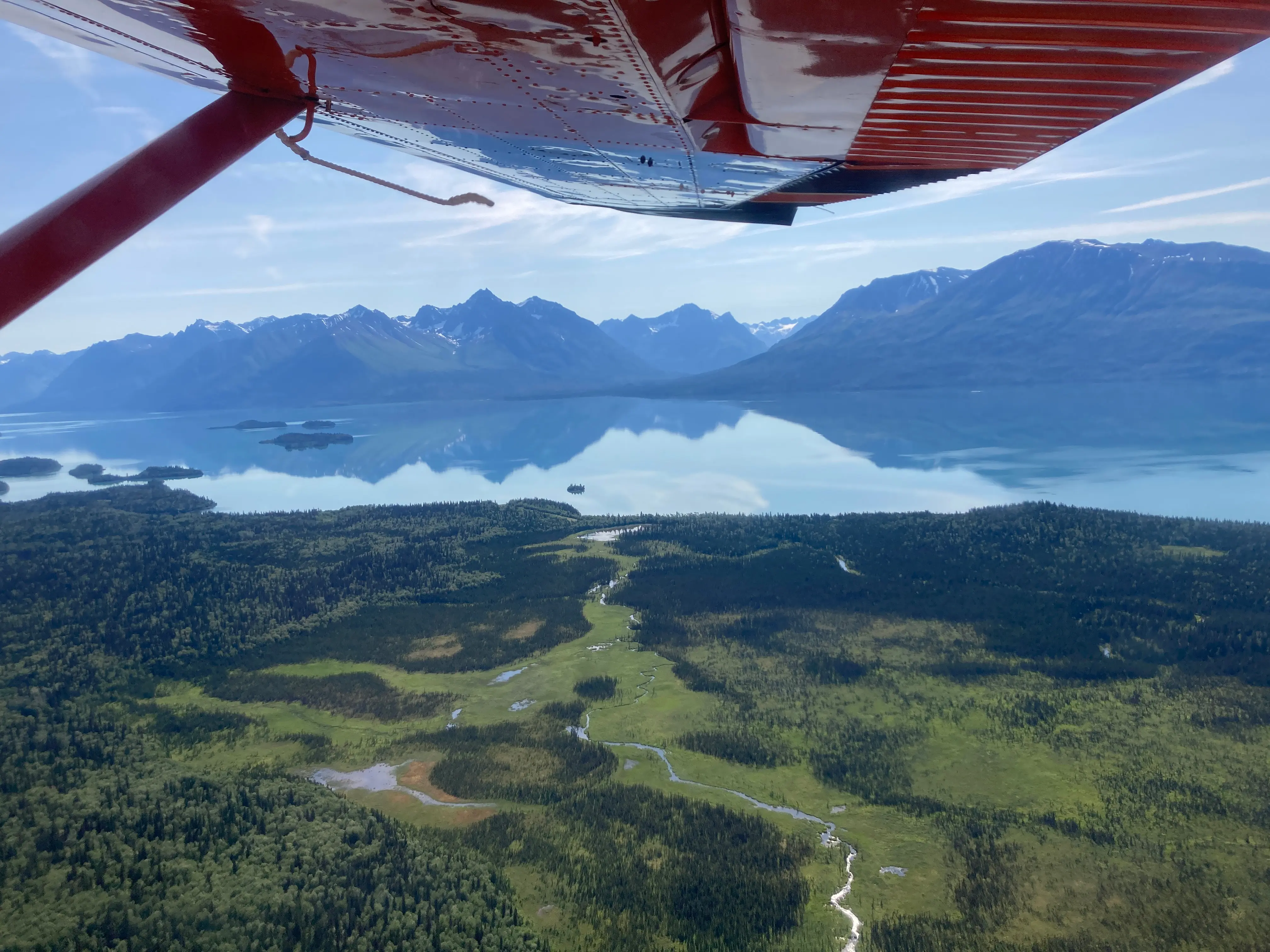LATROBE, PA — After working all of last summer on an internship in the Alaskan wilderness, Bridgette Gorg C 24 wasn’t eager to return to civilization.
“It was very peaceful to be away from everything,” Gorg said. “I really felt connected to nature and in tune with a lot of things. It was very hard to leave and go back to responding to emails and driving a car and buying groceries and things like that. Gorg, an Environmental Science major and Biology minor, spent 12 weeks counting salmon in the watershed at Lake Clark National Park, about 100 miles west of Anchorage, AK. Most of her work stations were so remote, they were accessible only by floatplane. “It was a lot of living in tents, backpacking, cooking over fires and driving boats,” she said.
Last December, Gorg won two awards for work related to about her internship at the 16th annual Student Symposium on the Environment at Westminster College. Gorg took first place for her environmental project on the Alaskan fisheries internship and first place for her photo, “Historic Kijik Village as Viewed from Floatplane.”
The symposium featured environmental-based projects, research, service work, internships and artwork and had more than 130 attendees from Saint Vincent College, Westminster College, Chatham University, Indiana University of Pennsylvania, Thiel College, the University of Pittsburgh at Greensburg and four regional high schools.
“I was really excited to tell other people about this beautiful and peaceful place I visited,” Gorg said. “I wanted to share how those salmon are actually a conservation success story. A lot of times you hear about different species that are in decline, but this is a species that's doing really well.”
Originally, Gorg didn’t plan on trekking in Alaska. When her initial plans for an internship fell through at the last minute, she found this job through the Student Conservation Association and got some funding from AmeriCorps. Gorg had done some backpacking and camping before, but nothing like this. The most difficult adjustment was the Midnight Sun — because of the Earth’s axial tilt, the sun doesn’t dip below the horizon from late April to late August.
Gorg counted salmon while perched atop a scaffolding tower and also in the water at a gate placed across a river. Comparing the data against numbers compiled over the past 80 years, she and the other counters found a significant increase in the amount of salmon. “That was surprising,” she said. “But it means that the salmon fisheries are healthy — or, at least, it means the two I counted are healthy.”
There are no cell towers in the thick Alaskan woods, so Gorg’s primary connection to the outside world was via a satellite phone. All of her groceries, mostly canned goods, had to be flown in before she arrived in Alaska. To spice up her dinners of dry beans and rice, Gorg fished for salmon. Some days, she’d come across more bears than humans.
“The bears were all very friendly, very peaceful — mostly, I think, because they were much more interested in salmon than they were in me at the time,” Gorg said with a laugh. “It was really cool to see them up close, and see how big and powerful they are.”
The internship taught Gorg a lot about environmental research techniques, and gave her an unexpected chance to experience backcountry living. It also set her firmly on a path toward life after college.
“It really solidified a decision I’d already sort of made about how I'd love to make a career of environmental research,” Gorg said. “Getting in there and staying out in the woods for three months, I really loved it. I'd love to do something like that again.”
Gorg already is dreaming about going back to Alaska for something more than just a 12-week stint.
“They have a lot of jobs out there,” she said. “I’m looking into them.”
Bridgette Gorg with a salmon

“Historic Kijik Village as Viewed from Floatplane,” taken by Bridgette Gorg